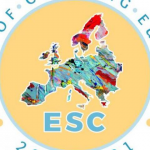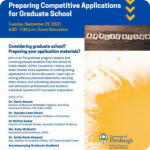Past Events
- John Edward
- Zoom
The United Kingdom's relationship within the European Union has always been a hesitant one, late to the party of European integration. Now since that relationship is coming to an end, the once-powerful union of the United Kingdom itself looks fragile and in question. John Edward will look at the UK's seemingly inexorable exit from the EU, and how that has mirrored a growth in national political sentiment in the constituent parts of the UK itself. How will Edinburgh, London and the other capitals of Europe respond? Will departure from one union after almost 50 years mean exit from another that has lasted 300 years? John Edward represented Scotland in the European Union for 8 years, as Scotland's Parliament was re-established, having worked for the last surviving "founding father" of the EU. Thereafter, he ran the European Parliament's Office in Scotland - seeking to bring the Parliament's activities closer to its voters. In the 2016 EU exit referendum, John was the Chief Spokesman for the "Remain" campaign in Scotland (which won). Event Registration:http://www.cvent.com/events/what-brexit-might-mean-for-the-future-of-sco...

- Various
- on-line
The ESC’s 2020-21 theme, Creating Europe, explores both the political, social, cultural, and geographical forces that have given shape to contemporary Europe and also individuals who create and are creative in their daily or artistic expressions of what it means to be European. In celebration of German Campus Week, this month’s Conversations on Europe focuses on topic of cultural diversity in Germany and how the European nation has aimed to create inclusive community building. Our virtual roundtable will discuss successes, failures, and the future of Germany’s diverse communities. Audience participation is encouraged. Panelists: Rahsaan Maxwell, Professor, Department of Political Science, University of North Carolina at Chapel Hill Danny Choi, Assistant Professor, Department of Political Science, University of Pittsburgh Kai Unzicker, Senior Project Manager, Bertelsmann Stiftung Moderator: Jae-Jae Spoon Event Registration: https://pitt.zoom.us/webinar/register/WN_pXKilhrtTwKX53Il8APJhw This event is part of the #JMintheUS event series, an initiative of Jean Monnet Centers in the U.S.

- Ngofeen Mputubwele
- Zoom
Ngofeen Mputubwele is a journalist, lawyer, and podcast producer for the New Yorker Radio Hour based in New York City. He reports on issues of culture, language, and food, with an emphasis on international issues and the black diaspora. His work has been featured on NPR?s Code Switch, Rough Translation, as well as Gimlet Media?s The Nod, Every Little Thing, We Came to Win, and more. Most recently, he produced and narrated the New Yorker Radio Hour podcast episode "Black Italians Fight to Be Italian." He lives in Brooklyn with the 2.3 million yeast in his sourdough starter. Event Registration: https://pitt.zoom.us/meeting/register/tJ0oduyvrjkoHdEOCPA4HovLQdV0gNpv2uKu
- Zoom
Event Registration: https://gatech.co1.qualtrics.com/jfe/form/SV_ebbdCX2k4hcc7aJ #JMintheUS
- Ambassador Tony Gardner, Prof Michael Kimmage
- Zoom
Event Registration: https://gatech.co1.qualtrics.com/jfe/form/SV_ebbdCX2k4hcc7aJ #JMintheUS
- Zoom
Event Registration: https://gatech.co1.qualtrics.com/jfe/form/SV_ebbdCX2k4hcc7aJ #JMintheUS

- Zoom
A UHC scholar community is a collaborative, interdisciplinary group of people who share interests in researching issues, imagining projects, resolving problems, and learning from each other’s experiences. The “Horror Genre as a Social Force” scholar community seeks to build on existing Pitt initiatives devoted to the scholarly study of horror in its social, historical, cultural, political, and artistic forms. Key partners include the Global Studies Center (home of the Global Horror Studies Archival and Research Network), the University Library System (home of the George A. Romero Collection and the Horror Studies Archive), the Department of English, the Film and Media Studies Program, and the George A. Romero Foundation. At this session, we will have a chance to meet each other, discuss projects in progress, and imagine projects to come that connect to horror studies conceived as broadly and ambitiously as possible. Your curiosity is much more important than any expertise in horror! Faculty and Staff Event Link: https://pitt.zoom.us/s/96802462278 There will be a separate information session for students earlier that same day: Friday, October 9th at 2:00pm. Zoom link: https://pitt.zoom.us/j/96813508616
- Joaquín Roy
- Zoom
Joaquín Roy, (Lic. Law, University of Barcelona, 1966; Ph.D, Georgetown University, 1973), is Jean Monnet Professor and Director of University of Miami European Union Center of Excellence. He has published over 200 academic articles and reviews, and he is the author or editor of 39 books. He has also published over 1,600 columns and essays. He was awarded the Encomienda of the Order of Merit by King Juan Carlos of Spain. Event Link: https://virginiatech.zoom.us/j/96841224077?pwd=ejVpbzJFWFhIT0hkK3JVK1V2V... #JMintheUS
- Edit Herczog, former Member of European Parliament
- Zoom
The multiannual financial framework (MFF) budget of the European Union; a proposal which drags on for two years without negotiations is recasted, and then gets consensus in five days in an institution of 27 members. The same proposal gets consensus in a few months, but then is stalled for more than a year, only for it to be recasted in another institution of 705 members. The legislative procedure of the European Union is complex and for many looking from a distance, chaotic. It is particularly true in 2020, when the legislative and the financial cycles coincide and get entangled with the lengthy Brexit negotiations. If this was not enough, COVID- 19 made a disruptive change on both the political goals, the budget allocations, and the timeline of the negotiations at the finish line. The lecture will be made of three parts: Ready: What is the MFF and why it is different from any state budgets? What are the political motivations behind the numbers? Set: What are the main changes? How does the future EU budget differ from the current one? What are the consequences of Brexit? What are the yet open questions? Go: Will the new structure weaken democratic oversight? Will international participation be allowed in the EU programs. Come here Edit Herczog who was a Member of European Parliament (MEP) from 2004- 2014 discuss these issues. Her own small consultancy is providing long term compass to generate competitive advantage based on excellence. Interested in the future and prosperity she mostly works on subjects of Data, Research, ICT and Energy, and the Budget as a main ingredient to them. This is the third MFF in which she is engaged. Event Registration:http://www.cvent.com/events/the-multi-financial-framework-and-next-gener... #JMintheUS
- Catherine de Vries, Bocconi University
- Zoom
The COVID-19 pandemic is an unparalleled global crisis. Yet, despite the grave adversity faced by citizens, incumbents around the world experienced a boost in popularity during the onset of the outbreak. In this study, we examine how the response to the COVID-19 outbreak in one country has affected incumbent support in other countries. Specifically, we leverage the fact that the first country-wide lockdown on European soil, in Italy on March 9, 2020, happened during the fieldwork of online surveys conducted in four other European countries, France, Germany, Poland and Spain. Event Registration:https://ufl.zoom.us/webinar/register/WN_j2Zc4nA3Srinq1a2QgTIUg #JMintheUS
- Marcel Lewandowsky, Noemi Marin, Martin Palouš
- Zoom
In the EU, including in Central and Eastern Europe, populist parties of various stripes succeeded in riding a wave of anger over corruption, resentment at the outcome of the democratic transition, and anxiety about migration and the EU's principle of shared governance. Their leaders all have charismatic personalities who master the anti-establishment rhetoric to perfection and are often supported by Russia. This panel, with experts on the topic, offers a discussion of the seductive power of populism in European states and its impact on democracy in the region. Panelists Marcel Lewandowsky, DAAD Visiting Assistant Professor at the Center for European Studies University of Florida Noemi Marin, Professor, School of Communication and Multimedia Studies Florida Atlantic University Martin Palouš, Senior Fellow, School of International and Public Affairs (SIPA),and Director of SIPA’s Václav Havel Center for Human Rights and Diplomacy initiative, FIU Moderator: Markus Thiel, Associate Professor, Dept. of Politics & International Relations, Director, Miami-Florida Jean Monnet Center of Excellence, FIU Event Registration: https://www.eventbrite.com/e/webinar-populism-democratic-backsliding-in-... #JMintheUS

- Fred Kuwornu
- Zoom
Fred Kudjo Kuwornu is an activist-producer-filmmaker born and raised in ltaly and based in Brooklyn. His mother is an ltalian Jew, and his father a Ghanaian surgeon who lived in ltaly since the early 60's. Fred Kuwornu holds a Bachelor's degree in Politica! Science and Mass Media. After his experience working with the production crew of Spike Lee's Miracle at St. Anna, Fred decided to research the unknown story of the 92nd lnfantry "Buffalo Soldiers" Division, discovering and documenting the journey taken by the real 92nd lnfantry veterans, and the entire African American segregated combat unit, which fought in Europeduring WW Il. This research resulted in the award-winning documentary lnside Buffalo ("Best Documentary" at the Black Berlin lnternational Cinema Festival), which had screenings at the Pentagon and the Library of Congress, and received a letter of congratulations from President Barack Obama. In 2012, he released 18 IUS SOLI, which examines multiculturalism in ltaly but also specifically looks at questions of citizenship for the one million children of immigrants born and raised in ltaly but not yet ltalian citizens.ln 2016 he produced Blaxploitalian 100 Years of Blackness in ltalian Cinema. He is currently developing a concept platform "Blaq•IT" about Black ltalian History. Sponsored by the Lucci-Cornetti Fund and the European Studies Center's Year of Creating Europe Event Registration:https://pitt.zoom.us/webinar/register/WN_efCP7UMnRm-GrQ1mVMzrcw

- Graduate School Admissions Professionals
- Zoom Discussion
Considering graduate school? Preparing your application materials? Join us as Pitt graduate program experts and current graduate students from the School of Public Health, GSPIA, Economics, History, and Asian Studies share expertise on crafting strong applications in a Zoom discussion. Learn tips on writing effective personal statements, securing letter writers, and submitting desired credentials. Ask admissions professionals and students individual questions for successful preparation. Dr. Kevin Broom, Director of MHA and MHA/MBA Programs, Vice Chair, Associate Professor, Pitt Public Health Dr. Emily Rook-Koepsel, Asst. Director for Academic Affairs, UCIS Asian Studies Center Dr.Michel Gobat , Director of Graduate Studies, Associate Professor of History Dr. Daniele Coen-Pirani, Director of Graduate Studies, Professor of Economics Ms. Kelly McDevitt, Admissions and Enrollment, GSPIA Accompanying Graduate Students Don’t miss out on an opportunity to hear from the experts. Click the link below to secure a spot today! Tuesday, Sept 29th, 6:30pm Online Discussion Zoom Link:https://us02web.zoom.us/j/9238996364 Sign up today at:https://signup.com/go/ffYmFVe

- Varies
- Online
Water Infrastructure and Regional Governance, September 29 - October 2, 2020 The Regional Studies Association’s Research Network on Infrastructural Regionalism (NOIR) is convening three online (Zoom) workshops to showcase empirical and conceptual research at the intersection of water governance, infrastructure, and regionalism. Water infrastructure performs a vital role in making and remaking regions. Watersheds and reservoirs, pipelines and ports, and storm water management and climate change mitigation represent complex political, economic, and environmental challenges. They are essential, if often black-boxed infrastructures that define how regional space is constructed, territorialized, and experienced. As critical urban infrastructures and contested political objects, water systems are fundamental to conversations about sustainability and economic development trajectories for communities across the global South and global North. We are now accepting registrations for the NOIR Workshops on Water Infrastructure and Regional Governance. This event will assess how water infrastructure shapes formal and informal regional spaces, communities, and governance dynamics and explores how these shape how water infrastructure is developed. We are hosting four public panels that present research on what water infrastructure reveals about the politics and governance of metropolitan regions. REGISTER: https://pitt.co1.qualtrics.com/jfe/form/SV_7amhh1MQpKV09Eh TUESDAY, September 29 | 11am - 1pm ET Water Infrastructure and Regional Governance in and beyond Western Pennsylvania 11 - 11:10am | University of Pittsburgh/CONNECT Welcome CONNECT Executive Director Lydia Morin 11:10 - 11:20am | Regional Studies Association Welcome, Keynote Introductions Michael Glass, University of Pittsburgh 11:20 - 11:50am | Keynote 1: Infrastructures of Inequality Leila Harris, University of British Columbia 11:50am - 12:20pm | Keynote 2: Thinking Regionally, Acting Strategically: New Approaches to Governing Regional Water Infrastructures Andy Karvonen, KTH Royal Institute of Technology 12:20 - 12:35pm | Discussant Response Dan Bain, Pittsburgh Water Collaboratory 12:35pm - 1pm | Moderated Audience Q&A WEDNESDAY, September 30 | 11am - 12pm ET RESEARCH PANEL 1: Decision-Making and Engagement in Water Governance MODERATOR: Jen Nelles; Q&A: JP Addie Regional infrastructures are often taken for granted by the public, with the consequence that infrastructural management and planning is surrendered to experts and institutions that may not be representative of the region overall. By tracing the lines of authority and influence that shape city-region infrastructures, we hope to reveal opportunities for greater engagement of more diverse publics in the deliberations over infrastructural futures. Anne Taufen, Lisa Hoffman, Ken Yocom (University of Washington-Tacoma): Unveiling Infrastructures Ramazan Sayan & Nidhi Nagabhatla (UN University Institute for Water, Environment, and Health): An Infrastructure Turn in Water Sharing Fenna Hoefsloot, Javier Martinez, & Karin Pfeffer (University of Twente): Speculative futures of Lima’s water infrastructure Cat Button (University of Newcastle): Governing Water Infrastructure from our Homes THURSDAY, October 1 | 1am - 12pm ET RESEARCH PANEL 2: Regional Partnerships Under Threat MODERATOR: Michael Glass; Q&A: Jen Nelles Whereas regional infrastructures such as sewer lines, water treatment plants, and water transportation technologies (namely locks and dams) were constructed as part of earlier periods of urban and regional development, shifting patterns of demand threaten to diminish the utility of these assets. We need to ascertain how such changing dynamics are influencing (and being influenced by) the existing governance of those infrastructural networks. Andrew Dick & Sara Hughes (University of Michigan): The Multi-City Growth Machine in Regional Governance Networks—the case of the Karegnondi Water Authority Dayne Walling (University of Minnesota): Urban Geographies of Fragmentation and Distress: Government Planning, Development, Infrastructure, and Inequality around Deindustrialized US Cities Sachin Tiwale (Tata Institute of Social Sciences, Mumbai): Grabbing Water Resources in Urban Agglomeration—The Case of the Mumbai Metropolitan Region (MMR) Grete Gansauer & Julia Haggerty (Montana State University): Regionalizing the Rural through Large-Scale water Infrastructure Karsten Zimmerman (TU Dortmund): Infrastructure Regionalism as Driver for Metropolitan Governance? The Case of the Ruhr Region in Germany FRIDAY, October 2 | 11am - 12pm ET RESEARCH PANEL 3: Emerging Complexities in Regional Water Governance MODERATOR: JP Addie; Q&A Michael Glass Health crises, Federal mandates, technological innovation, and exogenous shocks can all disrupt formal and informal governance structures. We seek empirical examples and theoretical advances that can help to conceptualize how city-regions across the Global North and Global South are affected by these complexities, and to seek out best practices whereby specific regions are confronting these complexities. Mark Usher (University of Manchester): Hydraulic Territory: Internal colonization through urban catchment management in Singapore Filippo Menga & Michael K. Goodman (University of Reading): The Good Samaritan: Capitalism, Religion and the Political Economy of Care in International Water Charity Mike Finewood (Pace University), Marissa Matsler, Olivia Pierce, Zenya Lederman, & Ruthann Richards: What does it mean to empower communities? Green infrastructure incentive programs as a form of neoliberal governance Scott Raulerson, Richard Milligan, & Ellis Adams (Georgia State University): Urban Water and Hydrosocial Inequalities
- ‹ previous
- 44 of 51
- next ›
